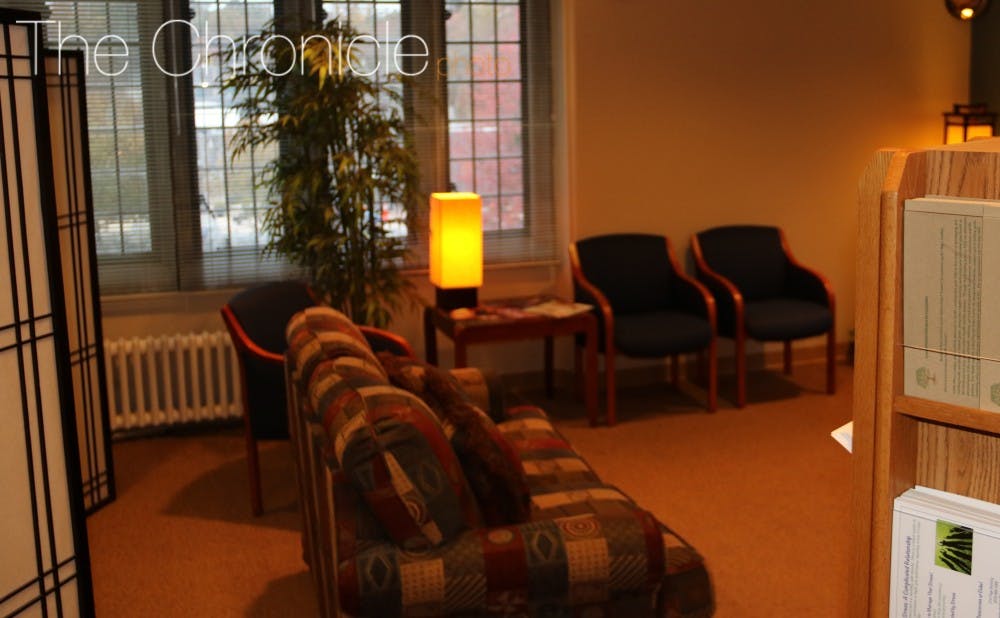Following Donald Trump's victory in the presidential election, campus resources are being made available to students who have struggled to handle the result.
Danielle Oakley, director of Counseling and Psychological Services, said that the number of students coming into CAPS has remained relatively consistent since the election. However, she also noted that students generally do not use the service immediately following an event. Instead, they reach out once the impact of the event takes a cumulative toll, affecting their relationships and academics.
“Any time racism or any other form of oppression occurs, there is a sense of wondering among students if others can be trusted and a sense of not knowing if others will be perpetrators of micro-aggressions,” she said.
And although the actual number of visits has not increased, Oakley said “concerns about physical safety and about voices not being heard” have been raised. The Center for Multicultural Affairs has also held gatherings for students to recover, and the Sanford School of Public Policy's safe space has also been open for students to react to the election.
Oakley noted that there is also a difference between instinctive emotional responses and mental health issues. And immediate distaste towards Trump's victory might not qualify as the latter.
“Those reactions to events that take place on a magnitude like that of this presidential election, where people feel like their voices haven’t been heard, are understandable,” Oakley said. “And that’s where we would hesitate to say ‘You should come to CAPS’ because we don’t want students to think that they’re having a mental health issue when they’re just experiencing a normal reaction.'"
She noted that if students are still struggling with their emotions long after the event has ended, they should consider visiting CAPS.
Oakley also sent out an email to the Duke community Monday night, encouraging students to seek help if needed. The email also asks student to have empathy and compassion for others even if they do not understand others' points of view, emphasizing the importance of compassion and listening.
"Counseling and Psychological Services advocates for a campus climate that is supportive of all students’ mental health and this election’s focus on traditionally marginalized groups has exacerbated their lived experiences of racism, sexism, Islamophobia, xenophobia and other forms of oppression," she wrote.
To cope with the results, Oakley suggested that students connect with their social circles and communities, but also take breaks from news sources and social media.
“Making sure that people are taking care of themselves and checking in with one another is important, especially because there can be great strength in being a support to other people,” she said.
Duke's chapter of the National Alliance on Mental Illness is also working to help students who may be struggling. Junior Alex Doan, president of NAMI, said he has personally struggled with understanding his own feelings. Because of this, Doan said, he would like to work with the club to provide support to the student body in the wake of the election.
“We want to talk about the importance of identity,” he said.
Get The Chronicle straight to your inbox
Signup for our weekly newsletter. Cancel at any time.

